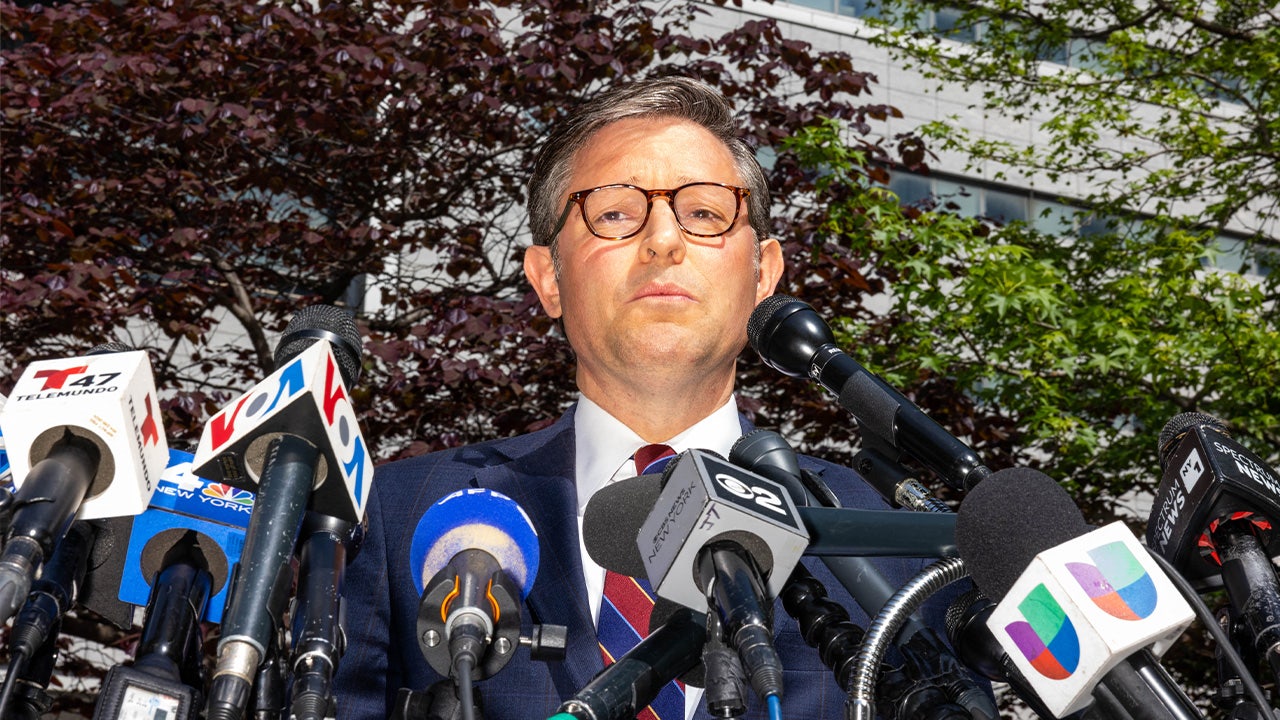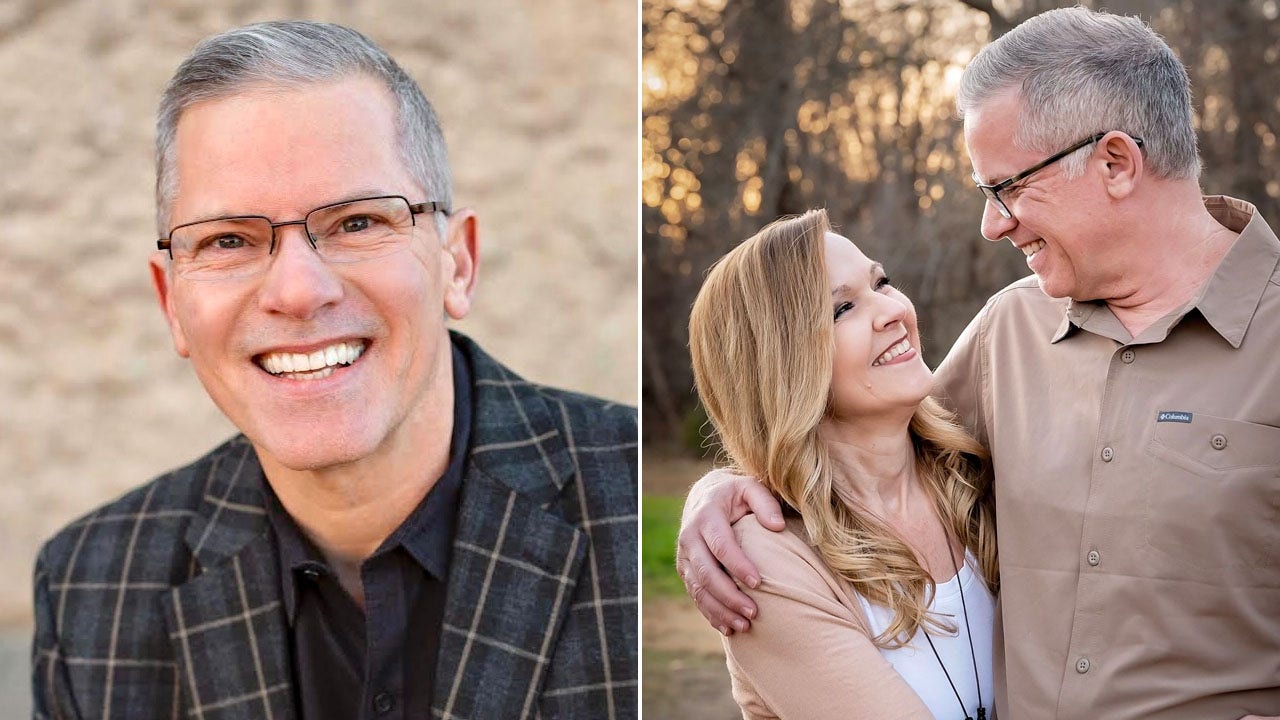Missouri
Missouri shows support for Kansas City Chiefs in Super Bowl LVIII
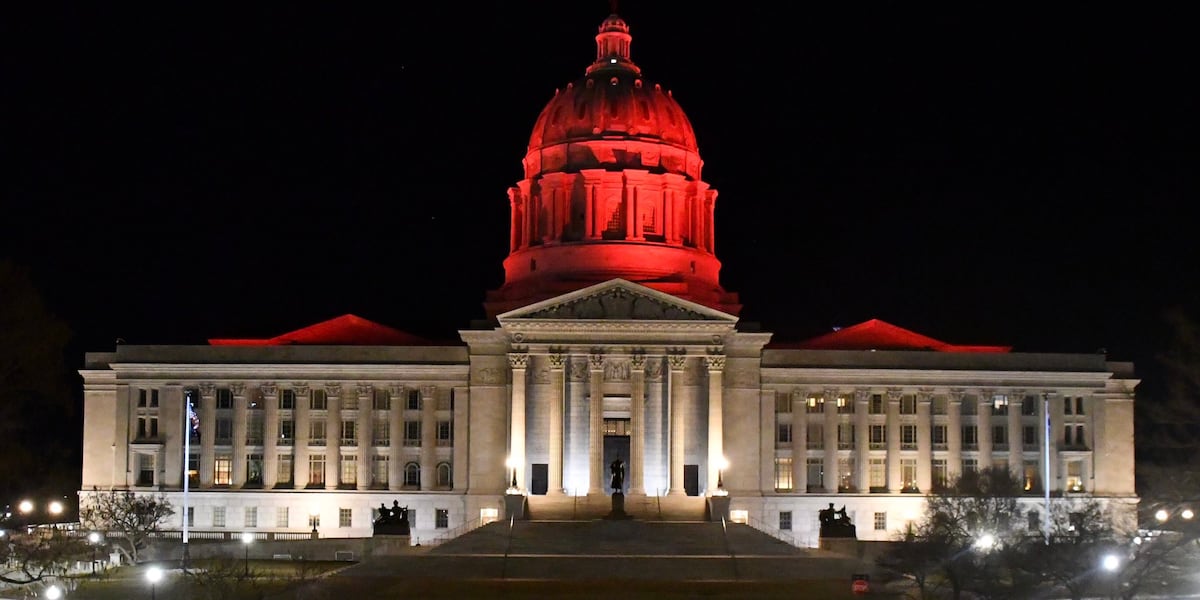
JEFFERSON CITY, Mo. (KCTV) – Missouri will be shining bright to show support for the Kansas City Chiefs leading up to Super Bowl LVIII.
Governor Mike Parson issued an order to turn the dome at the Missouri State Capitol red and gold this weekend. The dome will glow in support of the Chiefs from Friday, February 9, through Sunday, February 11.
“On this Red Friday, the state of Missouri and fans all over Chiefs Kingdom are once again celebrating our Kansas City Chiefs making it to the Super Bowl,” Parson said. “As the 57th Governor of Missouri, we were fortunate enough to watch our Chiefs win Super Bowl 57, and we look forward to watching them run it back for a repeat at Super Bowl 58. We’re proud to call the Kansas City Chiefs Missouri’s team, and on behalf of the state of Missouri and all of Chiefs Kingdom.”
Governor and First Lady Parson also plan to meet with California Gavin Newsom and First Partner Jennifer Newsom in Las Vegas ahead of the Super Bowl LVIII. Each Governor plans to exchange gifts, including signed Super Bowl LVIII memorabilia, to be auctioned off to benefit charity.
ALSO READ: Pride overflows in Chiefs Kingdom as watch parties, photo ops finalized
The Parsons have been long-time Chiefs season ticket holders. The Governor’s office said the couple bought their own tickets to attend Super Bowl LVIII, and aside from the standard security detail state taxpayers are not footing the bill.
Copyright 2024 KCTV. All rights reserved.

Missouri
Democrats pull all-night filibuster of bill making it harder to amend Missouri Constitution • Missouri Independent

A Democratic filibuster of legislation making it harder for Missourians to amend the state constitution through citizen-led initiatives stretched through the night and into its 15th hour Tuesday morning.
Though Democrats oppose the changes to the initiative petition process, their filibuster was focused on GOP efforts to include “ballot candy” that would add unrelated issues about immigrants voting and foreign fundraising to the question that would appear on the statewide ballot.
Unless Republicans agree to ditch all of the ballot candy — which was removed when the Senate originally passed the bill in March — Democrats have vowed to block all action in the Senate until the legislative session adjourns at 6 p.m. Friday.
“Since it is forever,” state Sen. Lauren Arthur, a Kansas City Democrat, said of the amendment. “This is worth fighting and trying to stop.”
Republicans show no signs of backing down on the ballot candy, raising the odds that the Senate will be unable to pass anything else before adjourning.
“There is a hope that we are able to find a resolution to move forward so that the rest of session is able to operate,” state Sen. Mary Elizabeth Coleman, a Republican from Arnold sponsoring the initiative petition bill.
If the bill clears the legislature, it would go on the statewide ballot, most likely in August.
Missourians would be asked whether they want to require constitutional amendments be approved by both a majority of votes statewide and a majority of votes in a majority of the state’s eight congressional districts.
Currently, amendments pass with a simple majority.
Republicans have pushed to change the initiative petition process for years, but the effort picked up steam more recently as a campaign to restore abortion access in Missouri advanced closer to appearing on the ballot.
These lawmakers on the right have said that without eliminating the simple majority, abortion would likely become legal again. Missouri was the first state to outlaw abortion in nearly every circumstance in June 2022 after Roe v. Wade was overturned.
Democrats say the initiative petition process gives voice to citizens when elected officials aren’t acting on the will of the people.
“There must be some serious concerns that this isn’t the will of the people – the majority of the folks in the state of Missouri want autonomy over their bodies,” said state Sen. Steve Roberts, a St. Louis Democrat. “Otherwise why would you lead a misguided effort to confuse voters to make it more difficult to have their voices heard?”
Threat of the previous question

In addition to the changes to the initiative petition process, the bill being blocked in the Senate would ask Missourians if they want to bar non-citizens from voting and ban foreign entities from contributing to or sponsoring constitutional amendments.
Non-citizens have been barred from voting in Missouri since 1924. Federal law already bans foreign entities from getting involved.
Arthur said these “are not real threats,” but rather “scary hypotheticals.”
During Senate debate Monday, Democratic state Sen. John Rizzo of Independence said he’s been approached by Republicans trying to negotiate to take some, but not all, of the ballot candy.
“No,” Rizzo said he told them. “I’m not deceiving voters just a little bit.”Arthur replied that Democrats will only end the filibuster if the ballot candy is completely removed, or if they’re forced to through a “previous question,” a rarely-used procedural maneuver to cut off a filibuster and force a vote on a bill.
The previous question is considered a last resort in the Senate because the response is typically total gridlock as Democrats would use the chamber’s rules to derail the rest of the legislative session.
During a television interview broadcast Sunday, Senate Majority Leader Cindy O’Laughlin referred to the previous question motion as the “nuclear” option, saying she hasn’t made a decision yet whether to use it to pass initiative petition legislation or not.
But last week, state Sen. Rick Brattin, a Harrisonville Republican and a member of the Missouri Freedom Caucus, said his party is ready to use “any means necessary” to pass the initiative petition bill.

Republicans have said the change is necessary, arguing Missouri’s constitution is too easy to change, and that passing this amendment would give more voice to rural voters. Democrats say the bill is an attack on the concept of “one person, one vote.”
Senate Democrats on Monday continued to argue that such a constitutional change would make it virtually impossible for citizen-led ballot measures to ever be successful.
A February analysis by The Independent found that under the concurrent majority standard being proposed by Republicans, as few as 23% of voters could defeat a ballot measure. This was done by looking at the majority in the four districts with the fewest number of voters in 2020 and 2022.
State Sen. Tracy McCreery, an Olivette Democrat, cited this story on Monday afternoon, saying that this outcome “should raise alarms.”
“It will make politicians even more powerful,” McCreery said. “It takes power away from the people and puts way more power into the hands of politicians.”
At about 4 a.m., Rizzo took the floor again for his second filibuster shift this week.
“I don’t see the end in sight any time soon,” he said.
“Unfortunately we have to be here in the last week of session as bills are dying minute by minute, and lobbyists are probably running around somewhere here in a few hours screaming and yelling about why their bills are dying,” Rizzo said. “Because they can’t live without ballot candy.”
Missouri
Missouri AG to investigate Christian boarding schools
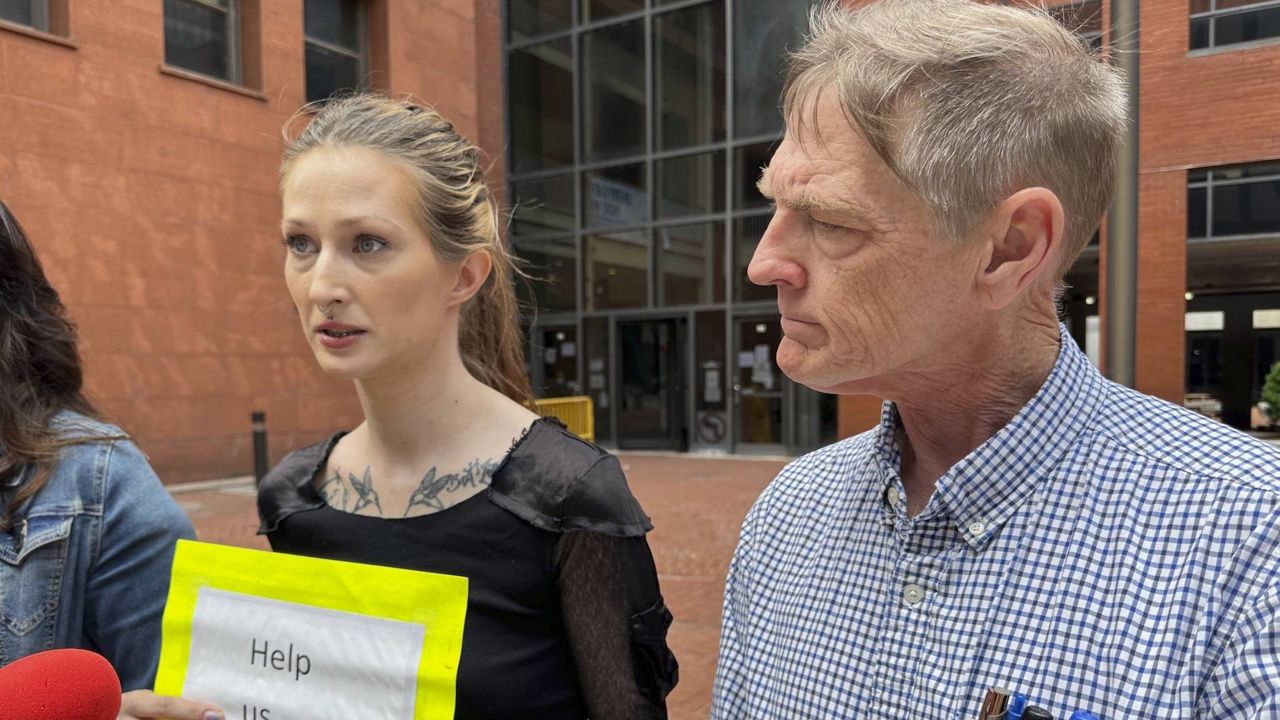
ST. LOUIS (AP) — Advocates for victims of abuse at Missouri boarding schools on Monday urged the state’s attorney general to launch an investigation, work with local prosecutors and take other steps aimed at stemming the tide of abuse.
Three Christian boarding schools in southern Missouri have shut down since 2020 amid wide-ranging abuse allegations levied by current and former students. Several people affiliated with those schools are facing criminal charges. Advocates who worry that more abuse is going unpunished gathered Monday outside Republican Attorney General Andrew Bailey’s St. Louis office to demand action.
“This is a structural problem,” said David Clohessy, a longtime advocate for abused children and former leader of the Survivors Network of those Abused by Priests. “These are facilities that are remote, independent, private, sometimes for-profit, largely under the radar with little or no scrutiny, state oversight, monitoring or supervision. It’s a recipe for disaster.”
A spokeswoman for Bailey said in an email that the attorney general’s office does not have jurisdiction to prosecute criminal cases, except when appointed as special prosecutor by the governor or a court.
“As a former prosecutor, Attorney General Bailey takes crime very seriously,” spokeswoman Madeline Sieren said, adding that Bailey “has taken substantive action to combat human trafficking where the law allows.”
Amanda Householder, now 33, is among the former students who claimed she was abused. Her story was different than most, though: Her parents, Boyd and Stephanie Householder, owned Circle of Hope Girls Ranch in remote southern Missouri until it closed in 2020 after investigators removed about two dozen girls.
Boyd and Stephanie Householder are scheduled to go to trial in November on a combined 100 charges accusing them of abusing girls at Circle of Hope. Boyd Householder, 74, was charged with 22 counts of having sexual contact, including sexual intercourse, with one girl who was younger than 17 at the time.
Sieren said the Attorney General’s office is handling prosecution of the Householders — proof that Bailey and the office are taking the issue seriously, she said. Three prosecutors are working on the case, she said.
Also, 16 former residents said the Householders frequently restrained them with handcuffs, whipped them with belts, taped their mouths shut and struck or punched them for minor offenses such as singing.
Messages were left with attorneys for the Householders. Phones listed as those of the couple have been disconnected.
Amanda Householder sued her parents, accusing them of beating her and forcing her to impose harsh punishments on other girls at Circle of Hope. She announced Monday that the lawsuit was settled but declined to discuss details.
Amanda Householder said she is forming a new nonprofit aimed at helping those victimized at boarding and reform schools.
“We have to be the voices for kids that are going through what we went through years ago,” Householder said.
Other Missouri facilities operating as Christian boarding schools also have come under intense scrutiny in recent years.
Agape Boarding School in Stockton closed in 2023 after abuse allegations. In 2021, Agape’s longtime doctor was charged with child sex crimes and five employees were charged with low-level abuse counts.
In March, ABM Ministries’ Lighthouse Christian Academy in Piedmont shut down after kidnapping charges were filed against the husband-and-wife owners, who were accused of locking a student in a room. A teacher also was charged with abuse for allegedly injuring a 15-year-old boy while boxing.
For decades, Missouri had among the most lax boarding school regulations of any state in the nation. A 1982 state law gave religious boarding schools free rein and the state no way to monitor how kids were educated. Even the state Health Department had no oversight, including for schools that claimed to address mental health, behavioral and addiction issues.
A new law was adopted in 2021 after extensive reporting from The Kansas City Star found that several faith-based boarding schools, including Agape, relocated to Missouri after being investigated or shut down for abuse or neglect elsewhere.
The new law sets minimum health and safety requirements for boarding schools, which still don’t have to be licensed. It mandates background checks for employees; requires adequate food, clothing and medical care for students; and says parents must be allowed access to their children at any time without prior notice.
Several students have run away from southern Missouri boarding schools in recent years, often claiming abuse. Two 15-year-olds went missing Saturday at a boarding school near Ava but were found safe Monday at a nearby cabin. Messages were left with the sheriff. A school official said it isn’t yet clear what prompted the boys to leave.
Missouri
Missouri enacts legislation to block Planned Parenthood from Medicaid funding – Catholic Review

Missouri’s Republican Gov. Mike Parson signed legislation May 9 that revives an effort to block Planned Parenthood from the state’s Medicaid program.
Following the U.S. Supreme Court’s June 2022 Dobbs v. Jackson Women’s Health Organization decision that reversed its previous abortion precedent, Missouri banned abortion in most circumstances. Planned Parenthood, the nation’s largest abortion provider, states on its local affiliate website that it no longer performs abortions in Missouri. But Planned Parenthood also indicates that abortions can be accessed across state lines at its clinics in Southern Illinois.
Supporters of allowing Planned Parenthood to receive Medicaid funds point to that group’s involvement in cancer screening and prevention services — such as pap tests and HPV vaccinations — but critics argue the funds are fungible and could be used to facilitate abortion despite the state’s prohibition.
Planned Parenthood’s Medicaid funding has long been a target of its pro-life critics, and state lawmakers have previously attempted to block the organization from Missouri’s Medicaid program, also known as MO HealthNet. In February, the Missouri Supreme Court found that lawmakers’ earlier attempt to defund Planned Parenthood was unconstitutional.
The new legislation, HB 2634, ends Medicaid reimbursements to any health care providers affiliated with abortion providers, including Planned Parenthood.
“Our administration has been the strongest pro-life administration in Missouri history,” Parson said in a statement. “We’ve ended all elective abortions in this state, approved new support for mothers, expecting mothers, and children, and, with this bill, ensured that we are not sending taxpayer dollars to abortion providers for any purpose. We thank members of the General Assembly for recognizing this important issue and sending this legislation to my desk.”
A statement from Planned Parenthood Great Plains and Planned Parenthood of St. Louis Region and Southwest Missouri said Parson’s “decision to sign this bill into law is deeply disappointing and harmful to the tens of thousands of Missourians who rely on Planned Parenthood for essential health care.”
“This bill not only defies the ruling of Missouri’s highest court but also flouts federal Medicaid law,” the statement said. “By denying Medicaid patients’ right to receive health care from Planned Parenthood, politicians are directly obstructing access to much-needed health services, including birth control, cancer screenings, annual wellness exams, and STI (sexually transmitted infection) testing and treatment.”
The statement further argued that other providers “cannot absorb the thousands of patients impacted by this ‘defunding’ attack. For this reason, Planned Parenthood health centers have worked to keep serving MO HealthNet patients at no cost though it is an unsustainable model for a state’s health care system.”
Pro-life groups, however, applauded the legislation.
“We applaud Gov. Parson and Republicans for standing up for the rights of girls and parents against the predatory abortion industry,” Sue Liebel, midwest regional director for SBA Pro-Life America, said in a statement.
Liebel added, “We must continue to fight for parents as Planned Parenthood attempts to put an abortion measure on the ballot to wipe parental consent off the books and remove health and safety regulations that protect women and girls.”
Chelsey Youman, national legislative advisor for Human Coalition Action, said in a statement the group appreciates Parson “for his strong leadership in signing pro-life policies into law in Missouri: protections for children in the womb, support for mothers, and now blocking taxpayer funding of abortion facilities. This is what pro-life leadership looks like.”
“Life is a winning issue,” Youman said, “and pro-life voters will back any candidate who presents a compelling pro-life vision and enacts strong policies protecting children and supporting vulnerable mothers.”
The new law is scheduled to go into effect Aug. 28.
Pro-life legislation in Missouri may face a significant test at the ballot box in November. A constitutional amendment to legalize abortion turned in more than 380,000 voter signatures by May 3 — more than double the 171,000 required to qualify for the ballot — which election officials must process by July 30 in order to verify whether the measure can be placed on the ballot.
Missouri’s Catholic bishops have urged Catholics and people of good will to oppose the initiative, saying it “does nothing to reduce or eliminate the underlying social causes for abortion and does not further a true culture of life in the state.”
Read More Respect Life
Copyright © 2024 OSV News
 Print
Print
-

 Politics1 week ago
Politics1 week agoHouse Dems seeking re-election seemingly reverse course, call on Biden to 'bring order to the southern border'
-

 Movie Reviews1 week ago
Movie Reviews1 week agoExhuma Movie Review: An effective horror film steeped in myth, legends, and realism
-

 World1 week ago
World1 week agoGerman socialist candidate attacked before EU elections
-

 World1 week ago
World1 week agoSpain and Argentina trade jibes in row before visit by President Milei
-

 Politics1 week ago
Politics1 week agoRepublicans believe college campus chaos works in their favor
-

 News1 week ago
News1 week agoUS man diagnosed with brain damage after allegedly being pushed into lake
-

 Politics1 week ago
Politics1 week agoFetterman says anti-Israel campus protests ‘working against peace' in Middle East, not putting hostages first
-

 World1 week ago
World1 week agoGaza ceasefire talks at crucial stage as Hamas delegation leaves Cairo


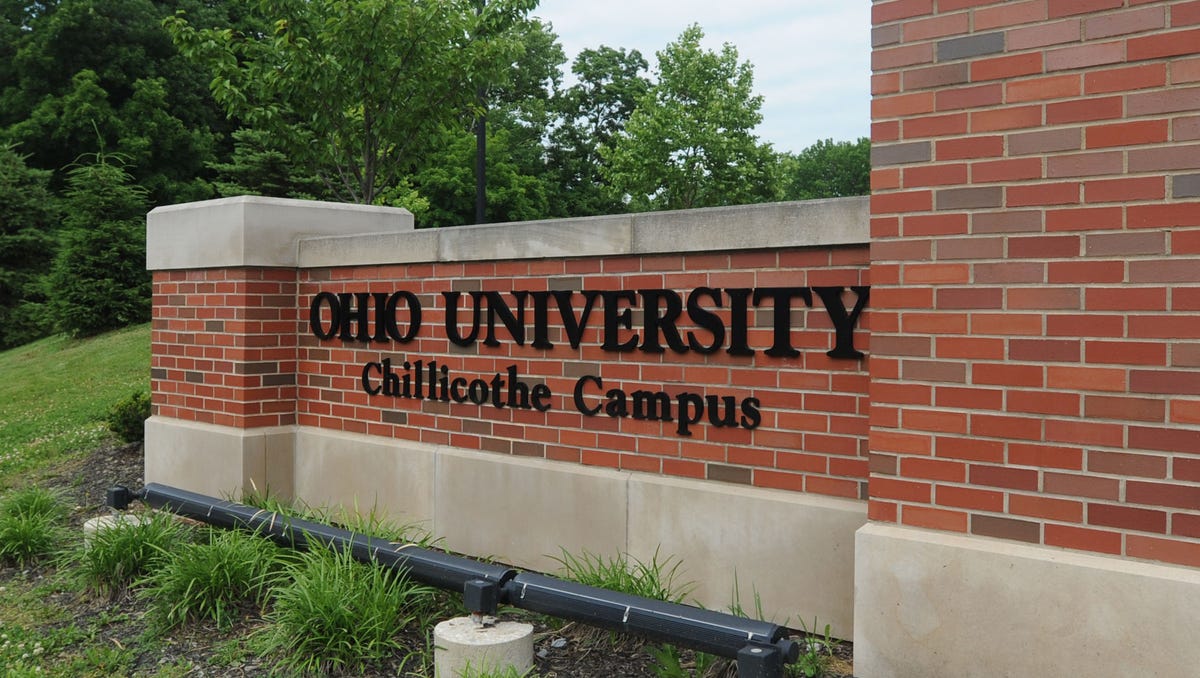


/cdn.vox-cdn.com/uploads/chorus_asset/file/25446071/1961182231.jpg)

